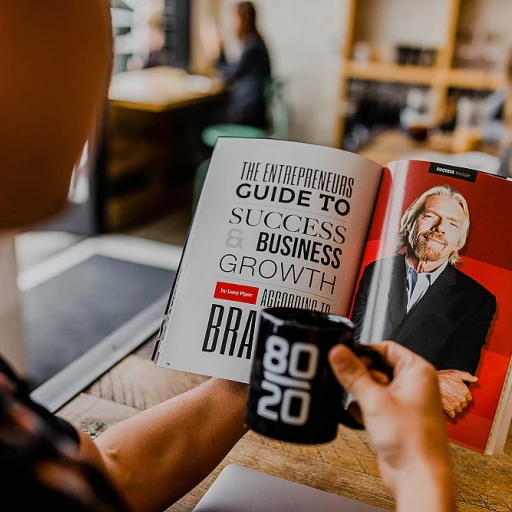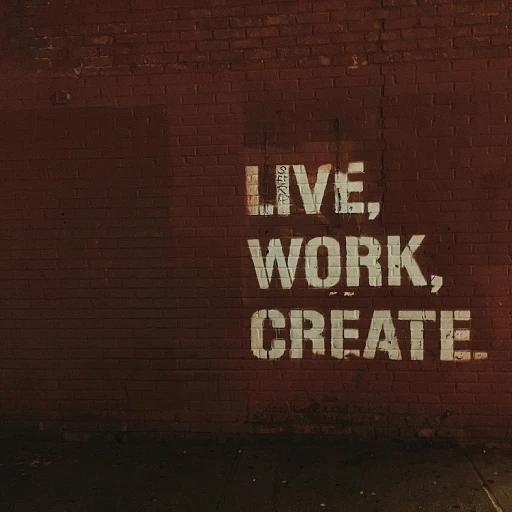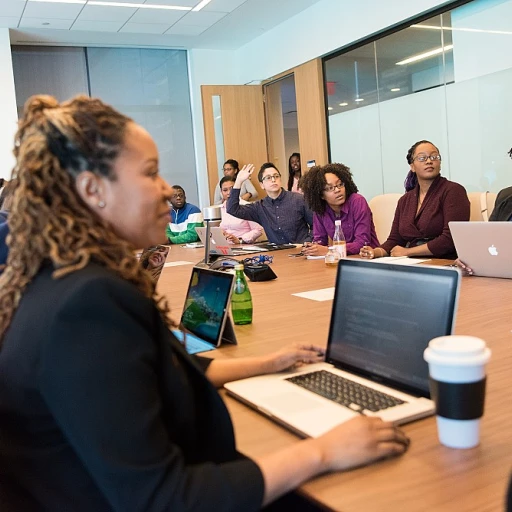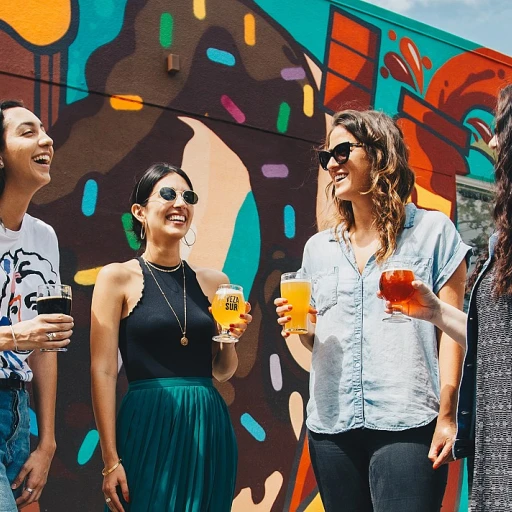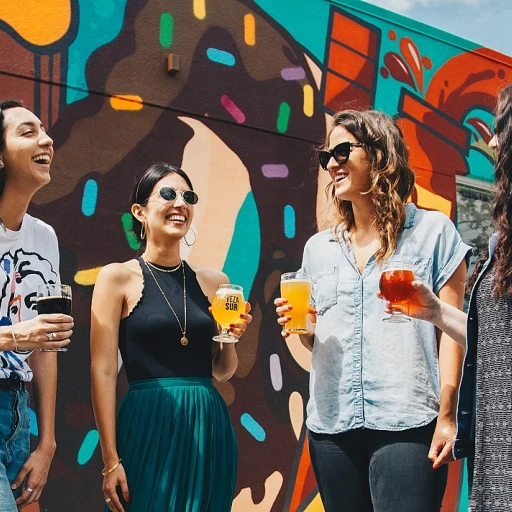
Understanding the Role of a Talent Coordinator
Grasping the Essentials of Talent Coordination
In the fast-paced world of influencer marketing, understanding the role of a talent coordinator is crucial. Talent coordinators serve as a bridge between influencers and brands, ensuring seamless collaborations. They manage a dynamic roster of talent, including social media influencers and content creators, to align with brands' marketing strategies. The New York-based industry is particularly bustling, with agencies and marketing managers working tirelessly in coordination roles. A talent coordinator's responsibilities extend beyond simple matchmaking. They engage in comprehensive talent management, handling everything from contract negotiations to communication logistics. Talent coordinators are the nexus of influencer partnerships, managing the delicate balance between creators' demands and brands' expectations. Moreover, talent coordinators operate across various platforms and industries, from Los Angeles to the United States and beyond. This geographical diversity amplifies their role as they work to maintain a harmonious relationship between the team, influencers, and brands involved. It is this versatility and strategic approach that defines the expertise of a proficient talent coordinator. For insights into top broadcasting companies that help facilitate such roles, consider exploring relevant sources.Challenges in Sourcing Influencer Talent
Hurdles in Engaging Influencer Talent
Sourcing talent in the form of influencers and creators presents unique challenges that set it apart from traditional recruitment. The dynamic nature of the social media landscape means that what worked a year ago might not work today. Brand managers and coordinators frequently encounter roadblocks that require adaptable strategies. One primary challenge is the hyper-competitive environment within the influencer market. With brands investing heavily in influencer marketing, the demand for high-quality creator talent is incredibly high. This makes it difficult for talent managers and agencies to find suitable candidates who can align with brand values and marketing strategies. Brand alignment is another hurdle. The influencer's follower base, content style, and personal brand must resonate with a company's image and message. Mismatches in these areas can lead to ineffective partnerships and wasted resources. The volatile rise and fall of influencers also pose a challenge. The social media world is fast-paced, and influencers can gain or lose prominence rapidly. Particularly in cities like Los Angeles and New York, where digital marketing thrives, staying updated with the latest trends is vital yet exhausting. Moreover, understanding and navigating contractual agreements with influencers can be a complex process. Influencer partnerships often involve negotiating terms that protect both the brand and the influencer, a task usually entrusted to a skilled talent coordinator or agency. It's essential to establish clear expectations and ensure compliance with user agreements to prevent any legal disputes. Despite these challenges, implementing a robust recruitment strategy can pay dividends in the long run. For guidance on how newsletters can play a crucial role in enhancing your recruiting efforts, check out this resource. This approach not only helps in maintaining a pool of potential candidates but also keeps your team aware of the industry's shifts and trends. These factors combined demand innovative sourcing strategies that we'll delve into further, ensuring brands can sustain their competitive edge in influencer marketing.Effective Strategies for Candidate Sourcing
Crafting a Robust Talent Sourcing Strategy
In the fast-paced world of digital marketing and talent coordination, finding the right influencer talent is often more challenging than it seems. The ever-evolving landscape of social media platforms, coupled with the growing variety of creators, demands innovative approaches to candidate sourcing.
With plenty of influencers emerging each day, it's crucial for a talent manager to establish an effective strategy. Here's how you can enhance your sourcing technique:
- Leverage Social Media Platforms: Utilize social media platforms beyond the common choices. Platforms can provide an extensive pool of influencers, each offering unique content styles and follower demographics.
- Engage a Diverse Team: A varied team of scouts and talent coordinators can bring diverse perspectives and insights into potential influencers, opening opportunities you might have overlooked otherwise.
- Collaborate with Agencies: Partnering with influencer agencies could streamline the process of acquiring talent, as they offer access to a wide range of ready-to-work influencers.
- Focus on Long-Term Relationships: Establishing long-term relationships with influencers can enhance your staffing strategy and ensure consistent brand representation across different marketing campaigns.
Brands and marketing managers should also consider geographic diversity when sourcing talent. For instance, the Los Angeles and New York influencer scenes differ significantly in style and reach, hence scouting talent from various locations can provide a richer blend of social media content.
The Importance of Building Relationships
Building Strong Connections in the Influencer Industry
In the fast-paced world of influencer marketing, building and maintaining relationships is crucial. Whether you're a talent manager, marketing coordinator, or part of an agency, the connections you forge can significantly impact your success. The influencer industry thrives on collaboration and trust, making relationship-building a key component of effective talent management.
One of the primary roles of a talent coordinator is to foster these connections. This involves not just reaching out to potential influencer talent but also nurturing existing relationships. A strong network can open doors to new opportunities and collaborations, benefiting both the influencers and the brands they represent.
The Role of Trust and Communication
Trust and communication are the cornerstones of any successful partnership. Influencers and creators often work with multiple brands and agencies, so standing out requires more than just a good pitch. Regular communication and transparency can help build trust, ensuring that influencers feel valued and understood. This is where a talent manager's skills in relationship management truly shine.
Moreover, understanding the unique needs and preferences of each influencer can help tailor your approach, making your collaborations more effective. This personalized touch can set your agency or brand apart in a crowded market.
Networking Beyond Social Media
While social media platforms are essential for connecting with influencers, don't underestimate the power of in-person networking. Events, conferences, and industry meet-ups in cities like Los Angeles and New York offer invaluable opportunities to meet influencers and creators face-to-face. These interactions can strengthen existing relationships and help forge new ones, providing a more personal touch than digital communication alone.
In conclusion, building relationships in the influencer industry is not just about making connections; it's about nurturing them. By focusing on trust, communication, and networking, talent coordinators can create a robust network that benefits all parties involved.
Leveraging Technology in Talent Coordination
Embracing Technological Tools for Increased Efficiency
In the bustling world of influencer marketing, the role of technology is undeniably crucial. Talent coordinators and managers need to leverage cutting-edge tools to streamline their processes and stay ahead in sourcing and managing influencer talent. As the industry evolves, adopting the right technological solutions can ensure a smoother workflow and boost overall productivity. Here's how technology is making a difference:
- Automated Solutions: Automation plays a central role in the talent management landscape, helping reduce repetitive tasks, facilitating communication, and enhancing the efficiency of managing complex schedules. Automated systems manage social media interactions, track performance metrics, and more, very much akin to the operations of a major agency.
- Data Analytics: Harnessing the power of data analytics offers profound insights into influencer performance and audience engagement. Talented individuals can be assessed based on their reach, engagement rates, and overall influence potential using precise data metrics. This proficiency allows brands to tailor their campaign strategies effectively.
- CRM Systems: Customer Relationship Management systems are indispensable in maintaining and nurturing relationships with creators and brands alike. These systems assist in compiling comprehensive influencer profiles and ensuring a seamless flow of information across the team and with influencers.
- Communication and Collaboration Tools: Given the competitive nature of the industry, real-time communication and effective collaboration are pivotal. Tools like Slack, Trello, or other pro-team apps offer fantastic platforms for maintaining synchronized operations within talent management teams, ensuring every talent manager is on the same page.
Technological advancements continue to reshape the creative domain, opening up new avenues for influencer partnerships. As brands become more entrenched in digital marketing, leveraging these tools allows them to stay at the forefront of influencer coordination strategies.
Future Trends in Influencer Talent Sourcing
The Evolution of Influencer Talent Sourcing
The world of influencer talent sourcing is dynamic, and it’s crucial to keep an eye on future trends that could shape the industry. As talent managers and marketing coordinators dive deeper into influencer marketing, understanding these trends is vital for staying ahead of the curve. The integration of cutting-edge technology continues to redefine how talent managers and talent agents operate. Social media platforms are evolving, presenting new opportunities for digital marketing and influencer partnerships. The role of a marketing manager has never been more essential in leveraging these platforms to maximize brand reach and engagement.- AI and Machine Learning: The rise of AI and machine learning tools is transforming how agencies source and manage influencer talent. These technologies provide data-driven insights into influencer performance, audience demographics, and content trends, offering a tactical edge in talent management.
- Increased Emphasis on Authentic Content: The industry is seeing a shift towards authentic and relatable content. Brands and agencies now seek influencers who can genuinely connect with their audiences, creating more meaningful brand-consumer interactions.
- Collaborative Platforms: Platforms designed for collaboration between brands and influencers are becoming more prevalent. These platforms streamline communication, contract management, and content approval, making the work of talent coordinators and talent managers more efficient.
- Rising Importance of Micro and Nano Influencers: As the industry expands, micro and nano influencers are gaining traction for their close-knit community engagement. Brands recognize their potential in achieving targeted marketing outcomes, thus becoming a strategic component of influencer campaigns.
- Ethical Considerations: In recent years, there’s been a move towards ethical influencer partnerships, with a focus on transparency and genuine brand alignment. This trend is redefining associations, urging brands to uphold user agreement standards in their partnerships.





